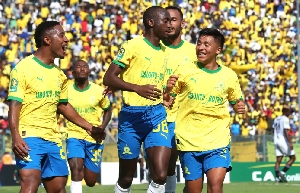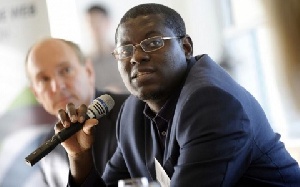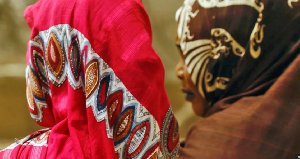By Kwame Okoampa-Ahoofe, Ph.D.
Garden City, New York
April 16, 2016
E-mail: okoampaahoofe@optimum.net
The controversy between Moderator-Emeritus Yaw Frimpong-Manso and the General Assembly of the Presbyterian Church of Ghana (GA-PCG) has a sharp but largely unspoken economic edge to it (See “Rev. Frimpong-Manso Resigns from Presby Church” Graphic.com.gh / Ghanaweb.com 4/16/16). You see, the Woodlawn-Ogden Ghanaian congregations of the Presbyterian Church of USA offers a plum job with handsome perks for recently retired or distinguished long-serving home-side ministers of the Accra-headquartered Presbyterian Church of Ghana. We need to also underscore the fact that Dr. Frimpong-Manso is not the very first minister of the PGC to have been invited, or seconded, from Ghana to serve as Minister-in-Charge of the Woodlawn and Ogden congregations of the Presbyterian Church of USA. I do not have the list of PCG-seconded ministers readily at hand, but I am aware of the fact that the pastor who immediately preceded Dr. Frimpong-Manso was the Rev. Dr. Kwame Amoah-Kuma, the current Chairman of West-Akyem Presbytery.
What one envisages to be simmering turbulently immediately underneath the decision by Rev. Frimpong-Manso to accept a renewal of his pastoral contract for a second 6-year tenure is clearly the fact that such move unduly delays the next winner/recipient of this veritable game of musical chairs his/her fair shake at this putative bonanza of a clerical post. It has absolutely nothing to do with anything else, apparently. It is purely a volatile conflict between economics and politics, in much the same way that oil and water have not been known to mix readily and sedately. We must also point out the fact that all religious establishments, irrespective of labelling or designation, are fundamentally rankly flawed human institutions. Once this is clearly and critically understood, the fetish pall or halo surrounding the patently political culture of the Church becomes just that. This epiphanic enlightenment, however, ought not to in any way, shape or form detract from the great moral and material good represented by the institution of the Church, in an otherwise decidedly chaotic affairs of global humanity.
That a quite remarkable number of these ministers posted abroad, especially to the United States, upon the expiration of their pastoral contracts and/or tenures, have almost invariably to a person left some of their young children behind, in order to obviously afford these children a critical chance at the proverbial American Dream, says far less about the moral compass or temperament and sensibilities of these PCG ministers but rather, even more about the inescapable fact of our primal need to serving our personal interests and those of the members of our immediate families as human beings. In short, we are all fundamentally and pathologically human, thus our scripturally encoded constant need for salvation and redemption. This is what the bigger picture of the Frimpong-Manso/PCG Controversy is indubitably about.
Those among his most ardent critics and detractors who begrudge him of his decision to accept the renewal of his pastoral contract for a second 6-year term, eagerly cite the fact that it was during his tenure as Moderator of the General Assembly of the Presbyterian Church of Ghana that the current rules of engagement were laid, with the active authorial participation of the then-Rt.-Rev. Yaw Frimpong-Manso. For that reason, many of these critics and detractors envisage the Asante-Mampong native’s decision to allegedly ride roughshod over some of the standing rules of the Church which, by the way, he personally championed as well as stringently supervised, as an epic and inexcusable betrayal before man and God.
Dr. Frimpong-Manso’s sharp response is that his unquestionable vindication inheres in a studious and objective interpretation of the contractual frame of reference under which his seconding from the PCG to PC-USA was effected. He does not say this directly, but it well appears that for Dr. Frimpong-Manso the curious attempt by the PCG’s headquarters operatives to pry him off his legitimately secured appointment and diligently earned pastoral confidence of the Woodlawn-Ogden congregations of PC-USA is diplomatically unbecoming, to say the least. At best, it is capriciously bizarre.
For the laity or clerical outsider looking in, there well appears to be a vindictive edge to the entire controversy, and one that may be uncomfortably predicated upon the karmic principle of that famous Akan maxim that loosely translates as follows: “It is the very cane used in whipping Baah that is also used in whipping Takyi.” In other words, one is inevitably bound to be measured by the very measuring rod with which one previously measured one’s neighbor. Further, Dr. Frimpong-Manso indicates in the strongest of terms that absolutely no rules, whatsoever, were broken when he decided to extend his pastoral stay with the Woodlawn-Ogden congregations of PC-USA.
*Visit my blog at: kwameokoampaahoofe.wordpress.com Ghanaffairs
Opinions of Thursday, 21 April 2016
Columnist: Okoampa-Ahoofe, Kwame


![Miracles Aboagye [L] and John Mahama Miracles Aboagye [L] and John Mahama](https://cdn.ghanaweb.com/imagelib/pics/700/70061516.295.jpg)











